Martin Sevior
Adversarial Robustness Guarantees for Quantum Classifiers
May 16, 2024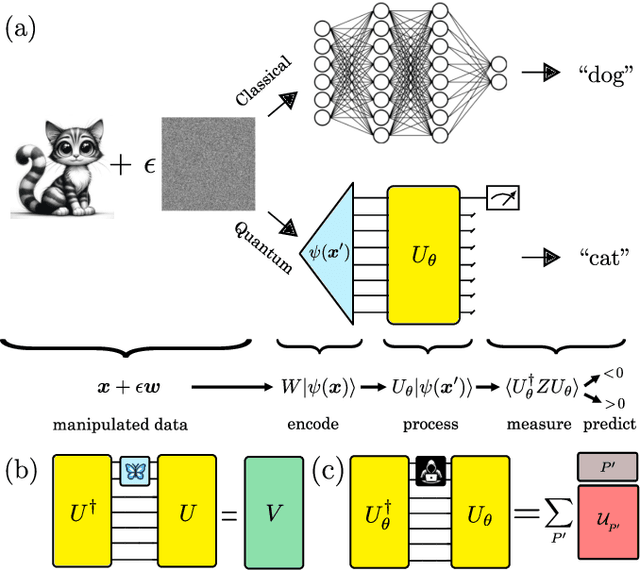

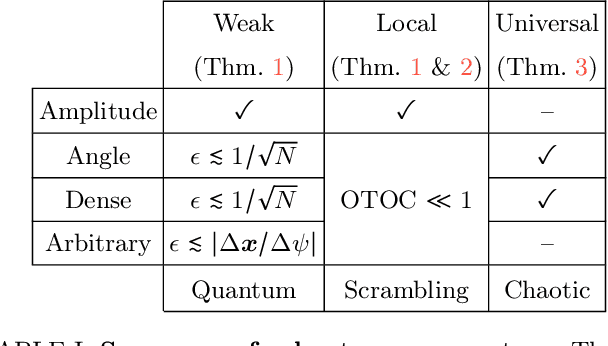
Abstract:Despite their ever more widespread deployment throughout society, machine learning algorithms remain critically vulnerable to being spoofed by subtle adversarial tampering with their input data. The prospect of near-term quantum computers being capable of running {quantum machine learning} (QML) algorithms has therefore generated intense interest in their adversarial vulnerability. Here we show that quantum properties of QML algorithms can confer fundamental protections against such attacks, in certain scenarios guaranteeing robustness against classically-armed adversaries. We leverage tools from many-body physics to identify the quantum sources of this protection. Our results offer a theoretical underpinning of recent evidence which suggest quantum advantages in the search for adversarial robustness. In particular, we prove that quantum classifiers are: (i) protected against weak perturbations of data drawn from the trained distribution, (ii) protected against local attacks if they are insufficiently scrambling, and (iii) protected against universal adversarial attacks if they are sufficiently quantum chaotic. Our analytic results are supported by numerical evidence demonstrating the applicability of our theorems and the resulting robustness of a quantum classifier in practice. This line of inquiry constitutes a concrete pathway to advantage in QML, orthogonal to the usually sought improvements in model speed or accuracy.
Benchmarking Adversarially Robust Quantum Machine Learning at Scale
Nov 23, 2022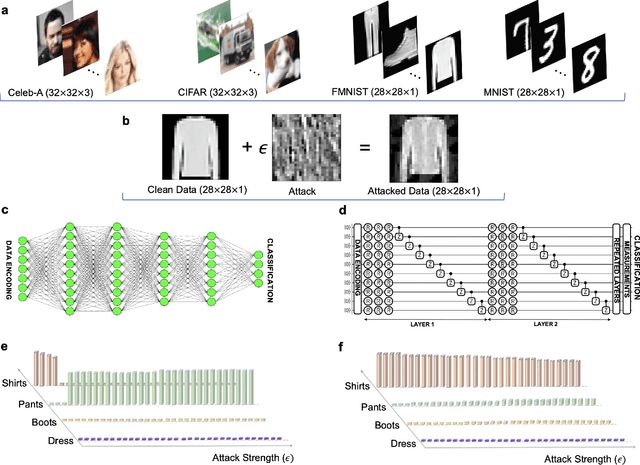
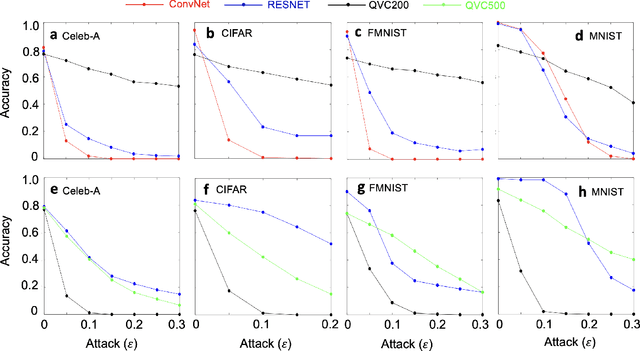
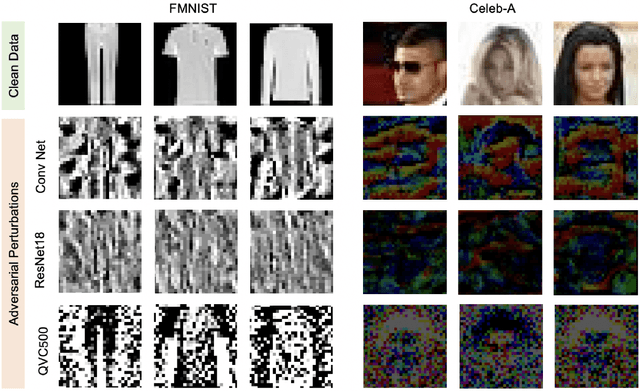
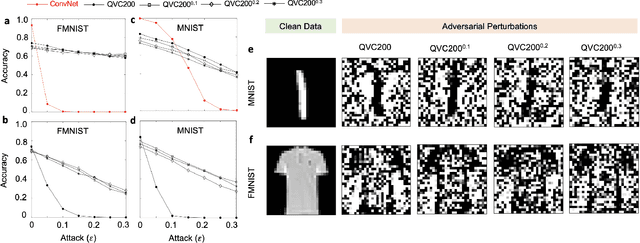
Abstract:Machine learning (ML) methods such as artificial neural networks are rapidly becoming ubiquitous in modern science, technology and industry. Despite their accuracy and sophistication, neural networks can be easily fooled by carefully designed malicious inputs known as adversarial attacks. While such vulnerabilities remain a serious challenge for classical neural networks, the extent of their existence is not fully understood in the quantum ML setting. In this work, we benchmark the robustness of quantum ML networks, such as quantum variational classifiers (QVC), at scale by performing rigorous training for both simple and complex image datasets and through a variety of high-end adversarial attacks. Our results show that QVCs offer a notably enhanced robustness against classical adversarial attacks by learning features which are not detected by the classical neural networks, indicating a possible quantum advantage for ML tasks. Contrarily, and remarkably, the converse is not true, with attacks on quantum networks also capable of deceiving classical neural networks. By combining quantum and classical network outcomes, we propose a novel adversarial attack detection technology. Traditionally quantum advantage in ML systems has been sought through increased accuracy or algorithmic speed-up, but our work has revealed the potential for a new kind of quantum advantage through superior robustness of ML models, whose practical realisation will address serious security concerns and reliability issues of ML algorithms employed in a myriad of applications including autonomous vehicles, cybersecurity, and surveillance robotic systems.
 Add to Chrome
Add to Chrome Add to Firefox
Add to Firefox Add to Edge
Add to Edge